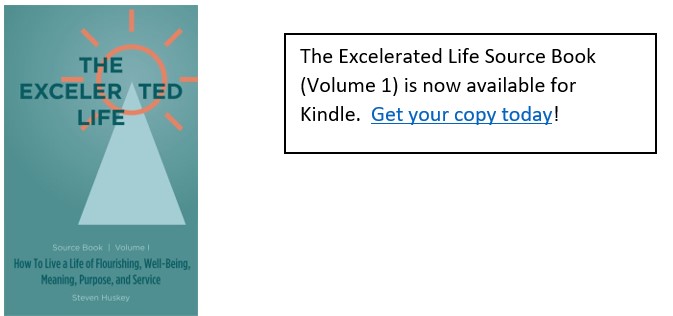Both the clock and the compass are important to managing our time and our lives. You must first use the compass to be sure you’re heading in the right direction. Let your compass tell you what truly matters. Then the clock can help your efficiency in doing the right things right.
TheExceleratedLife.com
Title Photo by Valentin Antonucci from Pexels
Efficient Or Effective?
Remember this story? Once upon a time, there were three little pigs . . .
As you’ll recall, the first pig built a house of straw. He collected his materials, got right to work, and had a shelter by the end of the day. Very efficient.
The second pig built a house of twigs. He, too, didn’t waste time and got his house built relatively quickly in a few days. Still quite efficient.
The third pig built her house of bricks. She worked consistently, day in and day out, no wasted time, no wasted effort. It took her longer to build, but she, too, was an efficient worker.
Of course, you know what happened when the wolf came. Remember? Only one of the three houses was left standing and offered protection to the little pig and her brothers. All three were efficient, but only one was effective. (I guess you could also say the wolf was pretty effective at destroying straw and twig houses.)
You’ve no doubt heard this well-known quote by Peter Drucker: “Efficiency is doing things right; effectiveness is doing the right things.”
You can be really efficient – getting your house built in a day. But if you are not being effective, that is, doing the right things, while you’re being efficient, you are not likely to make much real progress – and the wolf will blow down your house.

You Can’t Do Everything
One of the primary reasons to go for effectiveness is for the simple fact that you cannot do everything, even the things that are important to you. You may be both effective and efficient, but you’re still going to have to leave some things undone.
“Even the relatively privileged among us rarely get around to doing the right things,” writes Oliver Burkeman in Four Thousand Weeks: Time Management For Mortals. “We sense that there are important and fulfilling ways we could be spending our time, even if we can’t say exactly what they are — yet we systematically spend our days doing other things instead.” [Burkeman]
That means it’s crucial that you know what the “right” things are. And that you make the distinction between being effective and being merely efficient.

What Truly Matters?
Therefore, before you engage in “time management” and scheduling what you’ll do when, you first must go deeper and decide what truly matters to you. It’s the only way to be sure that the activities and tasks you engage in are the ones that move you in the direction of your goals and the life you want to create.
Because, as James Ryan warns, we can easily get caught up in our everyday routines and lose sight of what truly matters. Or we lack confidence in our capability to do what must be done, or we’re stressed out, and we look for distractions and those things that are easy to do. “In each of these situations, it is useful to ask yourself what truly matters. Doing so can help you dispense with routines, muster the courage to face difficult work, and help you regain enough calm to identify what is truly important.” [Ryan]
Don’t get lost in “the thick of thin things”. On the cover of Stephen Covey’s book First Things First, there’s a picture of a compass over top of a clock. Both are important to managing our time and our lives. But you must first use the compass to be sure you’re heading in the right direction. Only then can you decide how best to use your time.
Let your compass tell you what truly matters. Then decide which task is most important to work on.
Right Action
Using your compass before using your clock helps ensure you are going in the right direction. And here, we mean “right” in the sense of morality and ethical conduct.
In Buddhist teachings, Right Action is one of the aspects of the Noble Eightfold Path to enlightenment. Right in this case is “right” in the sense of being “upright” or “virtuous”. [O’Brien]
In “Doing Things Right Vs. Doing The Right Thing”, reporter Yen Makabenta writes:
“To do ‘the right thing’ means to make a choice among possibilities in favor of something the collective wisdom of humanity knows to be the way to act . . . we believe that somehow out of all the myriad possibilities in a complex world there is something we can call ‘right action’ in a given situation.” [Makabenta]
As we look to be effective and efficient, let us keep in mind that doing the right thing isn’t only a personal choice; there is a broader choice, a moral and ethical choice to make as well.
Don’t Fall For False Productivity
True productivity as we’ve said means doing “the right things right”. True productivity requires that we are both efficient and effective. A false productivity is you getting lots of things done, but not necessarily things that matter or that are important to you achieving your outcome. True productivity is you taking step after step after step in the direction of your goal. False productivity is you taking a step forward, a step to the left, a step to the right, a step backward, a step to the left, a step backward . . . After 1000 steps of true productivity, you are 1000 steps nearer your goal. But after 1000 steps of false productivity? You are not much closer and may in fact be further from your goal than when you started.
So, how can you avoid false productivity? Here are some ideas. [Stack]
- Output productivity. Don’t confuse quantity with quality.
- Avoid perfectionism. Sometimes you’ll need to do 100%, but for some tasks 80%, even 70% is OK. Remember the Law of Diminishing Returns.
- Low-value tasks aren’t always non-productive. After all, you still have to wash the dishes and do other household tasks. Work them into your schedule.
- Practice continuous improvement. The keyword here is practice. Use the principle of Kaizan.
- Remember your goals and stay open to possibilities. “The harder you struggle to fit everything in, the more of your time you’ll find yourself spending on the least meaningful things.” [Burkeman]
Choosing Productivity
When you and I are being truly productive, we are effective – doing the right thing. And we are efficient – doing things right.
But that isn’t the only choice. If we’re not paying proper attention to our decisions and our actions, we risk taking off in the wrong direction.
Doing the right thing wrong. Let’s think back to our piggy friends, specifically the mason, building her brick house. A few years before, when she knew nothing about bricklaying, she tried to build a house. But the walls leaned at crazy angles and didn’t even meet at one corner; there was a wide crevice of several inches. It was not a sturdy house. Fortunately, the little pig took a bricklaying class and soon was a top-notch mason.
How about you? You probably aren’t trying to build a brick house (although you could be) but are there other skills you need to learn or polish up to move toward your goal? You may be doing the right thing, but if you’re doing it wrong, you’re not making much progress.
Doing the wrong thing right. Consider the little pig that made his house of straw. He was an accomplished straw house maker and his straw house was fine indeed. Didn’t much matter, though, when the wolf came along, huffin’ and puffin’. This little pig did it right, but it was the wrong thing to do.
This scenario is mostly what we’ve talked about in this essay. If you’re doing things efficiently but they are not at least some of the things that move you forward, you are engaging in false productivity.
Finally, there is doing the wrong thing wrong. If our little pig friend had built a scarecrow out of his straw, instead of a house, well, he would not be here today. I suppose he could have built a scarewolf, but I don’t think those had been invented yet.
Recall Stephen Covey’s Time Management Matrix and the four quadrants. If you are doing the wrong things wrong, you are basically working in Quadrant IV, tasks that are not urgent and not important. And whether you do them right or do them wrong, you’re basically wasting time. Don’t do it.
Doing The Right Things Right
I hope you agree that it’s important to do the right things right, because your time is limited, and “doing anything requires sacrifice – the sacrifice of all the other things you could have been doing with that stretch of time. If you never stop to ask yourself if the sacrifice is worth it, your days will automatically begin to fill not just with more things, but with more trivial or tedious things . . . Commonly, these will be things that other people want you to do, to make their lives easier, and which you didn’t think to try to resist.” [Burkeman]
If you need help choosing your right things, try this Excelerator JumpStart for productivity. The Excelerator JumpStart – Excelerated Productivity™ provides quick actions you can take right now to jumpstart your Excelerated Life™ and to begin enjoying increased levels of productivity – Excelerated Productivity™ – by improving your efficiency and effectiveness. You can download a free copy here.
Focus on efficiency and effectiveness. That’s how you do the right things right. That’s how you embrace your Excelerated Life™!
Excelerated Productivity™ — improving efficiency and effectiveness — is one step in creating your Excelerated Life™, a life of flourishing and well-being, and a life of meaning, purpose, and service.
Read more about the Excelerated Life™.
Resources:
Burkeman, Oliver. Four Thousand Weeks: Time Management For Mortals. New York: Farrar, Straus and Giroux, 2021.
Covey, Stephen R., A. Roger Merrill, Rebecca R. Merrill. First Things First. New York: Fireside, 1994.
Makabenta, Yen. “Doing things right vs doing the right things.” The Manila Times. The Manila Times, April 10, 2018. Web. January 22, 2022.
https://www.manilatimes.net/2018/04/10/opinion/columnists/topanalysis/doing-things-right-vs-doing-the-right-things/391686
O’Brien, Barbara. “Right Action and the Eight Fold Path.” Learn Religions. Dotdash Publishing, April 03, 2018. Web. January 23, 2022.
https://www.learnreligions.com/right-action-450068
Ryan, James E. Wait, What? And Life’s Other Essential Questions. New York: HarperCollins Publishers Inc., 2017.
Stack, Laura. “True Performance: Five Ways to Avoid Fake Productivity.” Laura Stack, The Productivity Pro. Laura Stack, March 10, 2021. Web. January 22, 2022.
https://theproductivitypro.com/blog/2021/03/true-performance-five-ways-to-avoid-fake-productivity/


